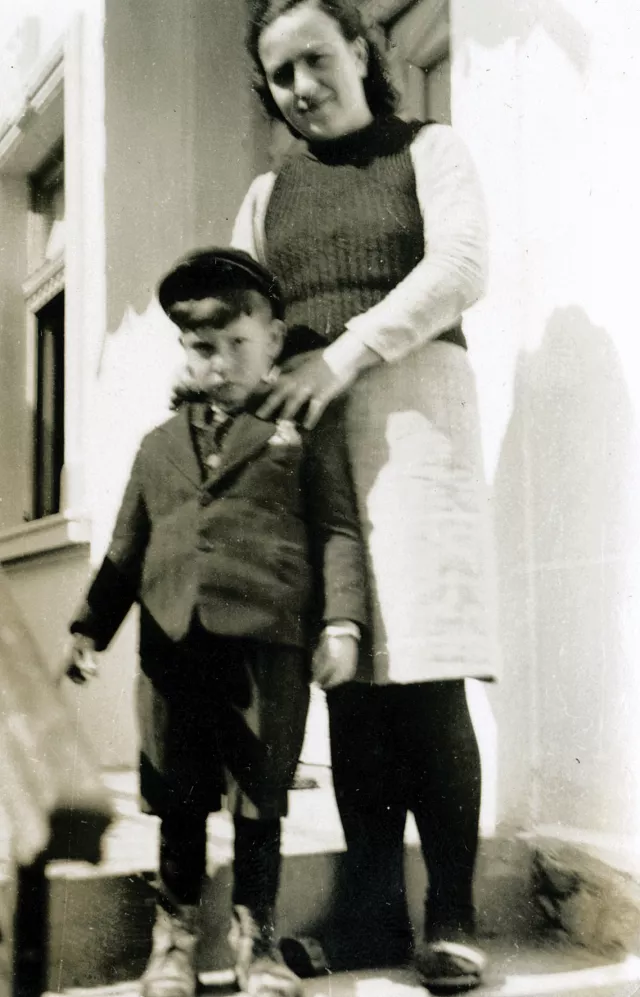Nisim Navon's aunt Sarina Navon with her child Jakov in front of Nisim's grandparents' house
Jakov Navon and his mother Serina Navon, my uncle's wife, in front of my grandparents' house in Pristina.
Kashrut (dietary law) was strictly observed in our household. There were separate dishes for milk and meat and these two were never to be mixed. Our grandmother and our mother made their own goat cheese. Before the onset of winter, a milkman delivered a large quantity of milk, and we used it to make a barrel full of cheese which lasted the entire winter. In preparation for winter, we also made our own wine, collected winter staples such as onions and garlic, and pickled vegetables. We would buy meat in those butcher shops which sold meat that Rabbi Zaharija Levi slaughtered and koshered. There was also a closet for Passover dishes, which was only opened for the Passover holiday. There was no kosher restaurant in Pristina, so eating in the local restaurants and cafes before the war was something we simply did not do.
Shabbat was observed each week in our family. No one worked from sundown on Friday until sundown on Saturday and we did not use lights. However, if by some chance we needed to do one of these things, we would go out to the street and look for a non-Jew to do it for us. Friday the women would prepare food for the entire Shabbat. The meal usually included fiuzaldikas, pastel (cake), fidjoni (cooked beans) and pitijas, an airy bread that served as challa. The members of our family living together gathered each Friday evening for the Shabbat meal. Our grandmother and the other women in the house would light candles. Usually this was a bowl of oil with a bunch of wicks, some of which were lit in memory of dead people. Our grandfather Jakov would make kiddush (the prayer over the wine). Each Shabbat morning we went to synagogue and back to the house for lunch. Our mother's father gathered the children at his house to make havdalah. We called the spices barmut.
















